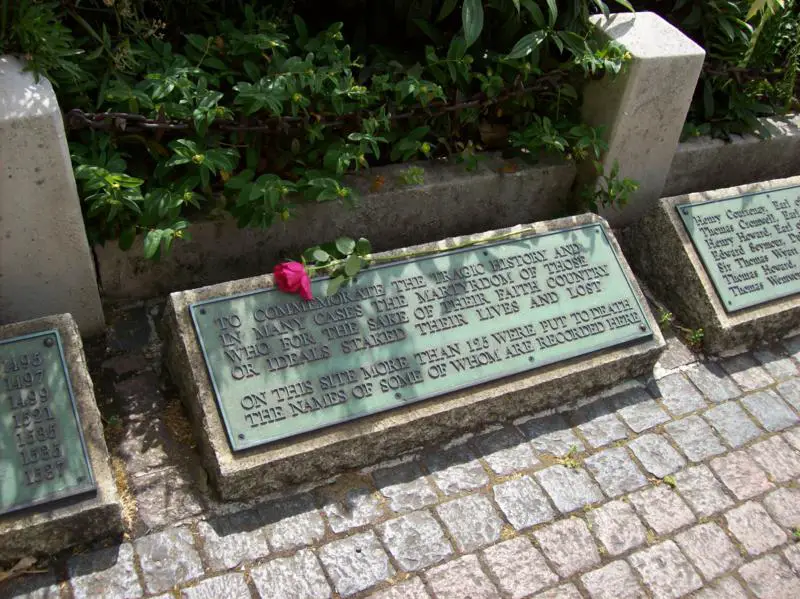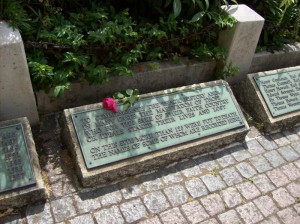George Boleyn by Lauren Duddell

 George Boleyn, believed to be the youngest of the three Boleyn siblings (born in around 1504), is one of the many great figures of the Tudor era who is often overlooked. During his years at court, George gained a number of important offices and titles, becoming a major court figure. Even before his sister Anne became Queen of England in 1533, George had progressed a great deal simply through his own merits. He became Royal Cupbearer in 1526, and went on to become Master of the King’s Buckhounds, governor of St Mary of Bethlehem hospital and gain the title of Lord Rochford, all before his sister’s meteoric rise. He wed Jane Parker, the daughter of the high-standing Lord Morely, and was known around court as a poet, a skilled gambler, and even a womaniser! Once his sister became Queen, the favours came thick and fast.
George Boleyn, believed to be the youngest of the three Boleyn siblings (born in around 1504), is one of the many great figures of the Tudor era who is often overlooked. During his years at court, George gained a number of important offices and titles, becoming a major court figure. Even before his sister Anne became Queen of England in 1533, George had progressed a great deal simply through his own merits. He became Royal Cupbearer in 1526, and went on to become Master of the King’s Buckhounds, governor of St Mary of Bethlehem hospital and gain the title of Lord Rochford, all before his sister’s meteoric rise. He wed Jane Parker, the daughter of the high-standing Lord Morely, and was known around court as a poet, a skilled gambler, and even a womaniser! Once his sister became Queen, the favours came thick and fast.
However, as all of us here at The Anne Boleyn Files know, the happiness of the Boleyn siblings was not to last. Anne was not the only member of the family who suffered when King Henry’s interest fell elsewhere, and George had soon followed her into arrest at the Tower of London. On the 15th May 1536, George and Anne were both tried and found guilty. Despite the talk that George had given the best defence since Sir Thomas More, the charge of incest with his beloved sister and the ‘evidence’ put forward by his wife was damning, and he was proclaimed guilty by all of the jury present. A mere two days later, on the 17th May, George was executed, the first of five men who had been charged with adultery with the Queen. He was buried in the chapel of St Peter Ad Vincula, within the Tower grounds, followed by his sister just two days later. A tragic end for two brilliant intellectuals, both of whom had risen to immeasurable heights.
I have long admired George Boleyn. Nowadays I am so fascinated by him that I am writing both a novel and a biography about him and his life, and defend him fiercely whenever he is spoken of badly. He is very likely to have helped his sister push the Protestant faith and ideals to King Henry VIII, and was a leading light of the Reformation. A fervent believer and supporter of the Church of England, George defended his religion with a ferocity that startled his contemporaries, but makes him admirable in the eyes of Protestants today. He was a highly intelligent individual, well-educated, and many anonymous Tudor poems are believed to have been written by him. He was gifted musically and an accomplished courtier. He was said to have been very good at hawking, tennis and card games, traits that only the most well-polished of courtiers could boast. I truly believe that George, despite his womanising ways, was a most admirable and brave man, killed in a way that was just as tragic as his sister’s death. Yet he is constantly forgotten, misplaced by history.
George Boleyn, Lord Rochford, also gave some most valuable advice to the witnesses of his execution; advice that is still relevant today.
“Trust not in the vanities of the world” he said as he stood upon the scaffold waiting to die. And today, when the world holds so many “vanities”, I feel that such advice is more relevant than ever before.